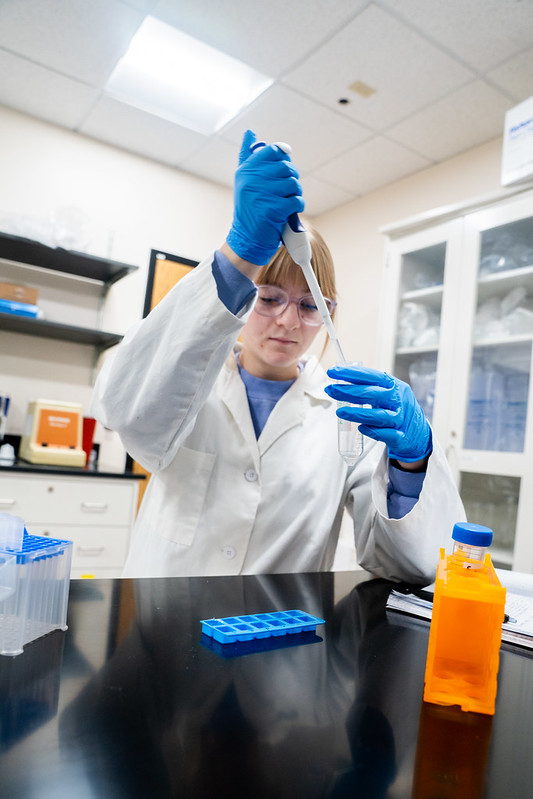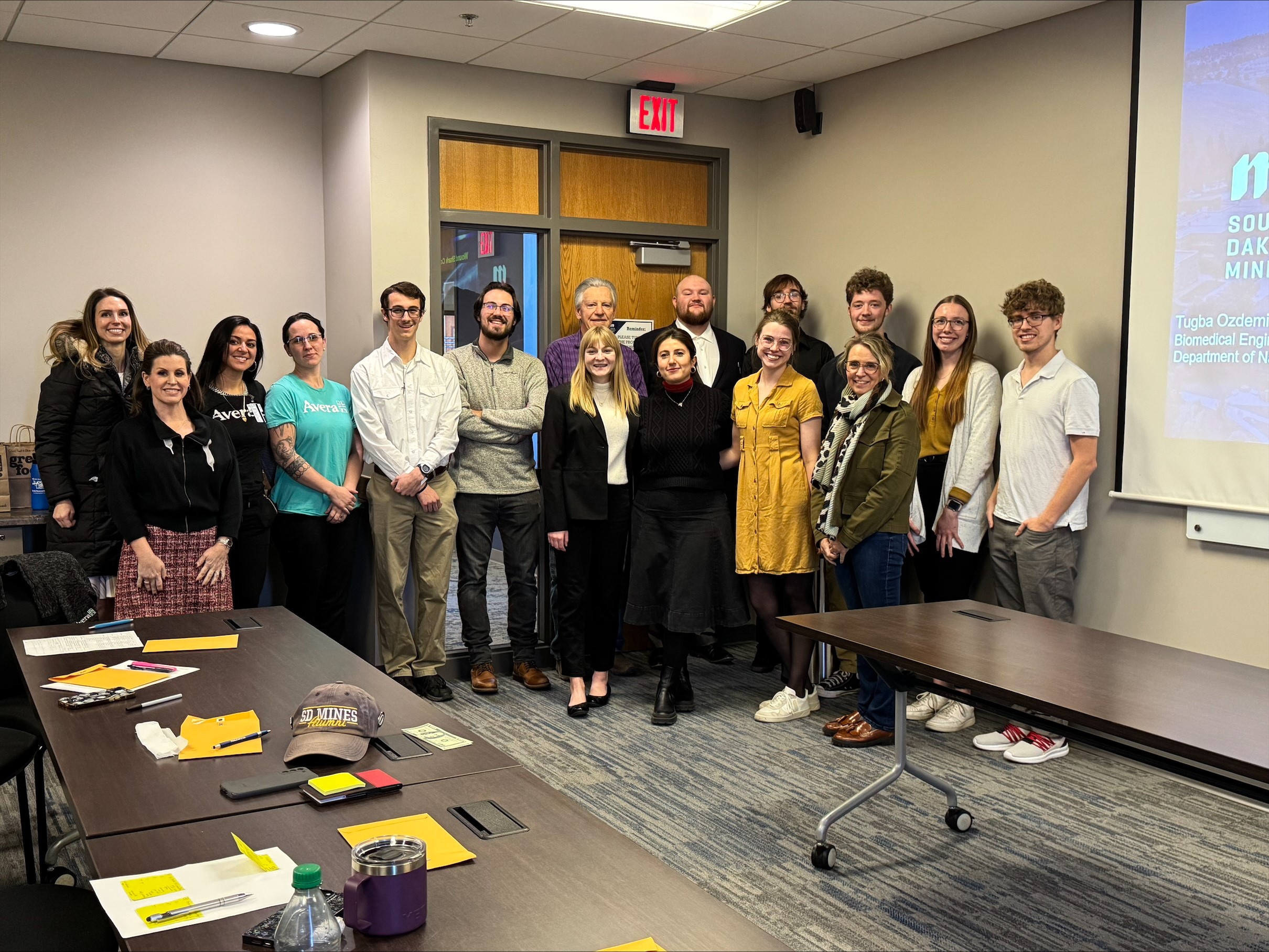Sharks, Are You Ready to Invest?: Mines Biomedical Engineering Students Pitch Wound Dressing Innovations to Local Professionals

Pitching a new product idea to a panel of seasoned professionals is no small feat – especially when asking them to invest hundreds of thousands of dollars. Yet, that is precisely what South Dakota Mines biomedical engineering students recently took on.
As part of their Cell and Tissue Engineering lab course, four student teams showcased their inventions to a panel of “local” sharks who questioned and critiqued students before negotiating deals.
The project was the brainchild of Tugba Ozdemir, Ph.D., assistant professor of nanoscience and biomedical engineering, who is an avid follower of the reality TV show Shark Tank.
“As a technical STEM institution with fully equipped students, encouraging entrepreneurship in my classes has been the focus of my teaching philosophy. I wanted to bring the spirit of innovation and entrepreneurship in tissue engineering by organizing such a competition,” she said.
Teams were asked to develop biocompatible wound dressings to distinguish inflammation
from infection in burn wounds. Designed for severe environments, the products needed
to be easy to use, even by non-medical personnel, and provide clear indicators of
infection or inflammation.
"This experience has inspired me to think bigger about the impact of my work,” said Whitney Ponwith, senior biomedical engineering student. “It's rare to have the chance to design, prototype, and pitch an innovative product all within one semester, and I'm so grateful for the guidance and support we received."
The semester-long project included collaboration with Ellsworth Air Force Base and Monument Health Wound Care. Two nurses served as medical advisors and discussed burn wounds with students.
Teams presented their unique, silk fibroin-based wound dressing product, the research behind it, the cost analysis, marketing plan and then asked for hypothetical capital from the potential investors for a share of their company.
This led to the creation of four innovative designs: BurnBox, a wound hydrogel embedded with biosensors; AromaFusion, an aromatic oil-infused antibacterial hydrogel; KinoClear, a bioresorbable colorimetric hydrogel that removes the need for painful dressing changes; and pHSense, custom-made hydrogels with ISO-compliant pH indicators.
"Our group created hydrogels infused with essential oils that have antibacterial properties, offering a potential solution for combating infection in burn wounds,” Ponwith said. “It was exciting to develop something both scientifically innovative and impactful for patients."
Ponwith’s team, AromaFusion, secured the highest capital funding from two investors which was higher than they initially requested.
“The students' presentations were outstanding,” said Beth Lambeth, Mines associate vice president for research-innovation and entrepreneurship, and one of the ‘sharks.’ “They worked to bridge the gap between theory and practice, combining academic knowledge with real-world insights by working with healthcare professionals. Their R&D projects, grounded in market analysis, demonstrate the potential to make a real difference.”
Lambeth, and James Quinn, Mines alumnus and an Entrepreneur in Residence (EIR), provided guidance to the students and served on the panel of ‘sharks.’
“All four teams did an excellent job of providing the relevant information of not
only their idea, but also all the business side, finances, market, customer, value
proposition, timeline, that investors expect to hear when they are letting a new startup
pitch,” Quinn said. “I have sat through hundreds of pitches and all four teams did
as well or in some cases better telling their story with confidence.”
That was Özdemir’s mission: equipping students with the essential skills needed to thrive in the fast-paced, ever-evolving landscape of engineering.
"Competitions like this foster an entrepreneurial mindset in engineers," she said. "Our future demands greater creativity, and by cultivating creative, entrepreneurial engineers, Mines students will be better equipped to tackle real-world challenges."